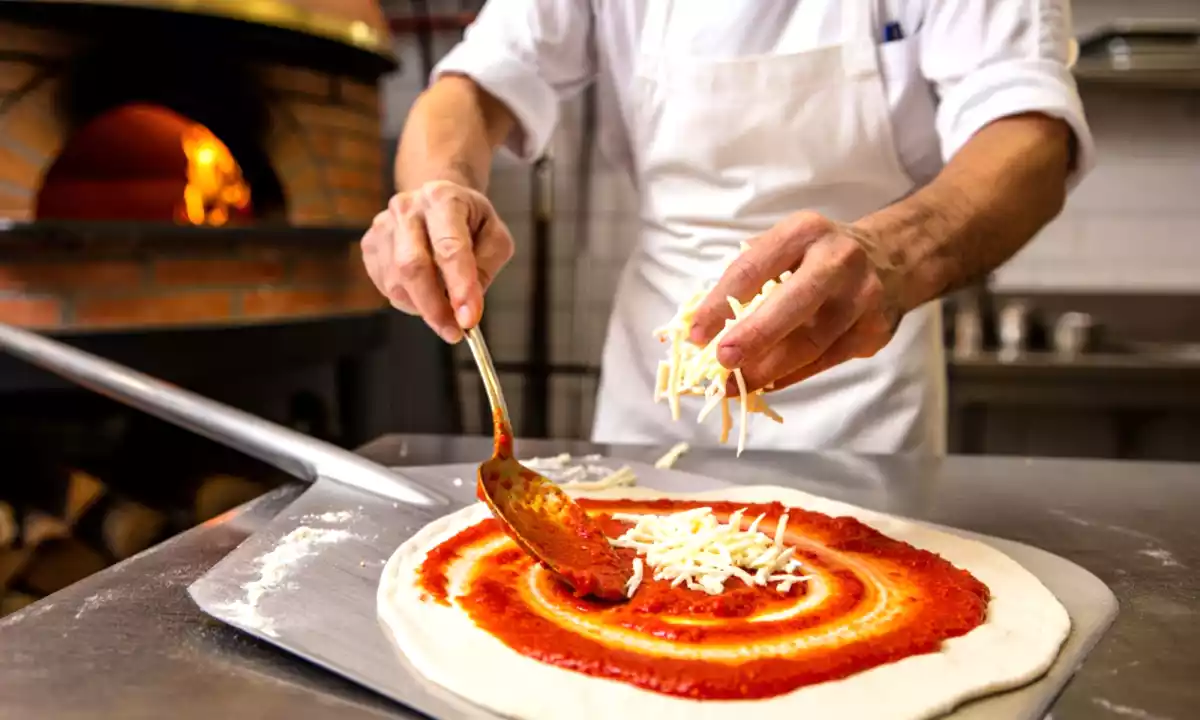Goodbye traditional mozzarella cheese? Here comes vegan cheese on pizza

Pizza, an undisputed symbol of Italy, is now the protagonist of a surprising transformation. In 2025, aided by the growing focus on environmental sustainability, health and ethical food choices, even this beloved dish is being revamped by plant-based cheeses. Thus is born the 100% plant-based pizza, in which traditional mozzarella is replaced by innovative vegan alternatives that are tasty and capable of winning over even the most traditionalist palates. This is not an ephemeral fad, but a real cultural revolution in the world of Italian food.
Why choose vegan mozzarella cheese?
Choosing a vegan mozzarella does not mean giving up the pleasure of pizza, but embracing a more conscious, ethical and innovative eating style. The reasons behind this choice are numerous:
- Ethical and environmental: producing plant-based cheeses has less environmental impact and does not involve animal exploitation compared to dairy products. According to the FAO 2023 report, the dairy sector contributes 4 percent of global greenhouse gas emissions. Plant-based alternatives significantly reduce this impact.
- Healthful: many versions are free of cholesterol, lactose and allergens, making them lighter.
- Tasteful: new vegan cheeses have made great strides in terms of flavor and texture, managing to win over even the most skeptical palates.
According to the Food Trend Report Italy 2025 by the Food&Future Observatory, consumption of plant-based cheeses has grown by 30 percent since 2024. A clear sign that consumers are ready for new experiences without sacrificing taste and quality.
The most popular types of vegan cheese for pizza
Not all vegan cheeses are equivalent; they differ in taste characteristics, texture and baking behavior. Here are the most commonly used in the pizza world:
- Rice or soy mozzarella: light and delicate, melts discreetly, suitable for white pizzas or with vegetables.
- Cashew or almond mozzarella: creamier and tastier, often self-made in artisanal pizzerias.
- Fermented oat- or legume-based cheeses: more complex, with umami notes, perfect for gourmet pizzas with sought-after ingredients.
- Vegetable mixes with starches and vegetable oils: very versatile, used for the "stringy" effect, ideal for those who want the visual effect of classic mozzarella.
- Self-made cheeses from artisan pizzerias: more and more pizzerias are choosing to make their own plant-based cheeses at home, combining legumes, nuts and natural ferments.
A possible (and delicious) future
Vegan pizza is not meant to replace the classic margherita, but to offer itself as a modern, sustainable and tasteful alternative, capable of enhancing the Italian culinary tradition. Today more than ever, food choices reflect deeply personal values: from health to respect for the environment. Even the great classics are evolving, and Italian pizza makers are responding with creativity, training and new combinations of ingredients. At the same time, the curiosity of consumers is growing, who are increasingly open to trying innovative variations.
Have you tried a plant-based cheese pizza yet? Tell us about your experience in the comments!
 Eva Alberghetti
Eva Alberghetti
Comments